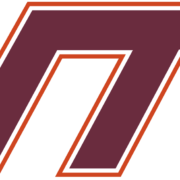How to Succeed as an Undergraduate Creative Writer
Throughout my first year in Virginia Tech’s Creative Writing program, I concentrated on two narrow objectives: pass my classes and become known as an undergraduate creative writer. While I did complete my primary goal, many of the expectations I held for the second task were unachievable, as I didn’t know what I was doing or even how to reach it. I was lucky enough to have my poem “On Neoclassicism and the Numbing of the Negro Mind” published in VT’s research magazine Philologia, but I didn’t maneuver through the writing world to “get known” or even to “get better”. After gaining a blogging position with Virginia Tech’s Literary and Art’s Magazine, Silhouette, participating in virtual open mics over the summer, and listening to the advice from my English professors, I found better ways to make my name known in/outside of my university. Here are three ways to succeed as an undergraduate creative writer at Virginia Tech:
#1 Write Daily, Read Daily.
Daily practice is an intuitive and disciplined dance. Many experienced writers have taught me to dedicate a set time to write or to collect details to write about later. But other methods, such as setting a daily word count, are effective as well.
Similarly, reading from other creative writers is crucial to developing your craft. In my first semester at Virginia Tech, I attended a poetry reading by writer Clint Smith at the Moss Arts Center, where he mentioned that his best work often comes after reading. I took his words into deep consideration, and since then, I’ve strengthened my writing by reading more. Regardless of how you practice, the point is to find a habit that works for you.
#2 Share Your Work And Find Your Community
Finding a writing-centered club at Virginia Tech is the most accessible way to find your community as an undergrad. You may want to try Tech’s Creative Writing Club, ‘CreativiTea’, which meets to improve and celebrate VT writers at any experience or skill, or you may want to join the Silhouette team when positions open. Even if Virginia Tech doesn’t have the club you’re looking for, other organizations outside of Tech may support your writing.
Connecting with these outside organizations isn’t difficult, but like daily practicing, is like a dance. I started my navigation in the literary social media world by following magazines related to my interests. I recommend following the Instagram page ‘@artopencalls’ that provides daily opportunities for emerging BIPOC and LGBTQ+ writers and artists. This page introduced me to nearly every writing opportunity I accepted in the summer.
Otherwise, following Trish Hopkinson on Twitter, along with Duotrope and Submittable, exposes you to different groups. If you see an interesting organization through these pages, see who they follow and where they meet. The chances are that at least one group shares your interests and has an opening for you to participate. And a simple Google search of ‘emerging writer magazines’ or other keywords that indicated what you want from a writing collective provides a bridge to these communities. When you find a suitable group, the following step is necessary:
#3 Publicize Your Writing
After you’ve practiced your writing and found a community that supports you, you must publicize your work to reach a broader audience. If you’ve followed the previous writing hubs, opportunities will flood your social media timelines and you’ll have a fresh pick of opportunities. If you choose to submit and publish your work, you will need to decide which publications suit your writing best.
Become a frequent reader of the publications you want to feature in, analyzing their pieces for form, diction, subject matter, and more. For example, a literary magazine that publishes short poetry about public settings doesn’t want long-form poetry about mythical animals. That doesn’t suit the magazine. If you provide pieces that are insightful yet within the publication’s artistic conversation, you’re on the right track.
To start, you may want to submit your work to undergraduate and emerging writer magazines such as:
Otherwise, you may want to perform your work through virtual or in-person open mics. I have performed at ‘@openmicrenegades’, a New York-based open mic that has moved to an all-virtual setting, as well as ‘@dmvrenaissanceawards’ that celebrates poetry in the Washington D.C., Maryland, and Northern Virginia areas on Instagram Live. In-person open mics in Blacksburg include ‘Glossolalia’, Virginia Tech’s literary festival, events from CreativiTea, and open mic events at the Milk Parlor. Regardless, every outlet requires a bit of research and openness, but the options for publicizing your work are endless.
Creative writing requires informed, and intuitive navigation, but above all, it implores writers to be patient. These tips about succeeding as an undergraduate writer are non-exhaustive and don’t lead to instant success. Practice these steps, but don’t expect desired results in a few days of following Submittable (or even after your first polished submission). Remember that writing is exercising, and exercising is a process. You’ve got this.







